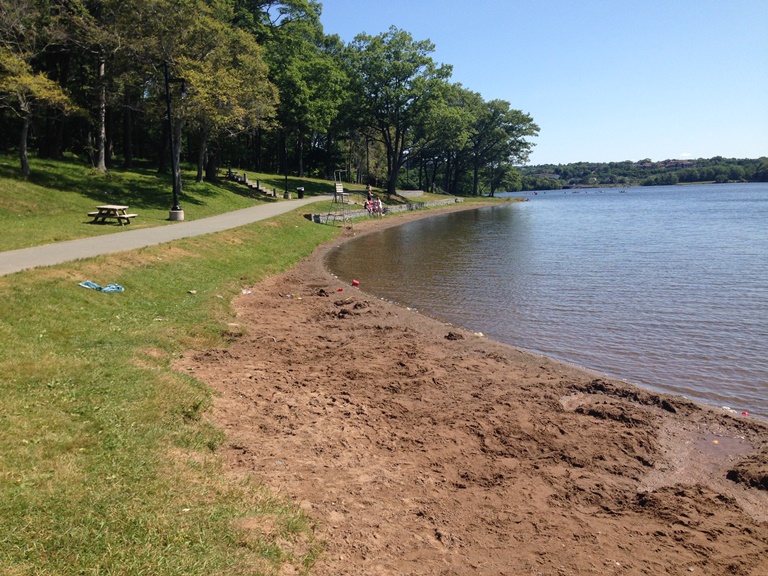A risk advisory is in effect for Dartmouth’s Birch Cove Beach because of possible blue-green algae in Lake Banook.

Halifax Regional Municipality says staff members are currently investigating whether it’s a toxin-producing algae in the water.
Blue-green algae is naturally occurring and can be visible when weather conditions are calm, says the municipality.
“These organisms can multiply rapidly during the summer, leading to extensive growth called a bloom,” reads a news release.
“Some types of blue-green algae produce toxins during blooms and when these blooms decay, the toxins may be released into the water, posing a risk to people and pets.”
People are “encouraged to avoid swimming” in the lake until further notice.

Get weekly health news
Those who come in contact with blue-green algae or ingest the water can experience skin irritation, sore eyes, swollen lips, fever, nausea, vomiting or diarrhea. Children and those who are immune-compromised are at a higher risk.
In June, blue-green algae in Nova Scotia’s Shubenacadie-Grand Lake was confirmed to have caused the deaths of two dogs.
At the time, the director of the water branch for the province’s Department of Environment, Elizabeth Kennedy, said Nova Scotia is seeing more reports of blue-green algae.

She said once the algae is in a lake, “we can’t ever be sure the algae is gone” because it will continue to bloom.
And with climate change, it’s expected the problem will only increase.
Birch Cove Beach has been the subject of numerous blue-green algae advisories in the past, and the blooms have been a frequent issue in Dartmouth lakes each summer.








Comments
Want to discuss? Please read our Commenting Policy first.